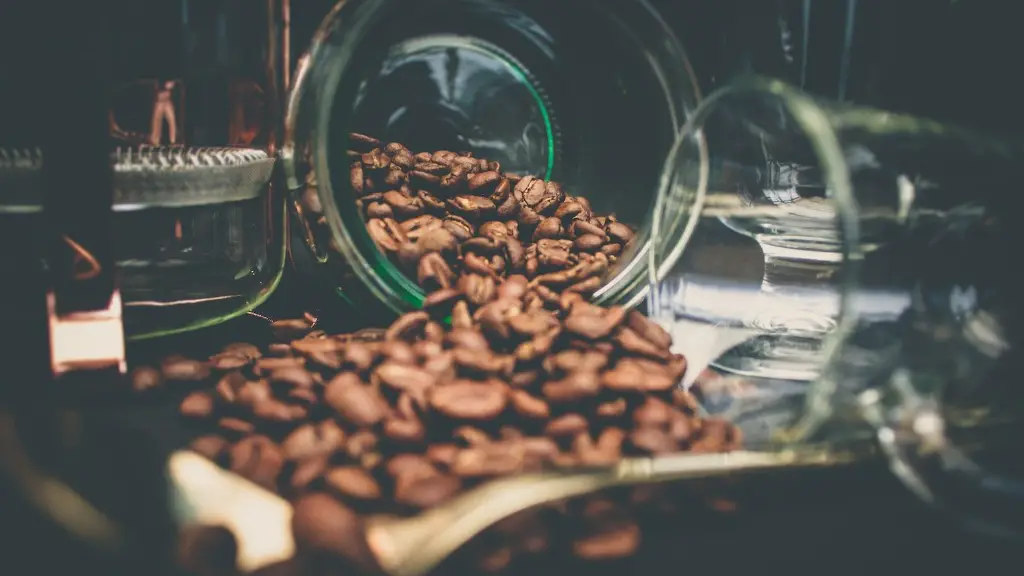Caffeine Effects of Mental Performance and Physical Performance
Have you ever drank a cup of coffee and felt that you had an energizing pick-me-up? You may be familiar with the feeling, but have you ever wondered why you feel so much more alert after consuming caffeine? It turns out that caffeine can have a myriad of effects on your mental performance and physical performance.
Caffeine interacts with the brain’s dopamine receptors, and this interaction increases the amount of dopamine in the brain. This dopamine increase is what is responsible for the alert and invigorated feeling that can be experienced after consuming caffeine. Along with this, caffeine can also increase alertness, concentration, and physical performance.
Caffeine is also known to increase the production of the hormone adrenaline. Adrenaline is the body’s fight-or-flight hormone and its production is regulated by the sympathetic nervous system. Thus, when caffeine is consumed, it increases the production of adrenaline which can lead to increased heart rate and respiration which in turn can lead to increased energy.
Additionally, caffeine can also result in the release of endorphins, the body’s “feel-good” hormones. Endorphins are responsible for providing the sense of pleasure, happiness, and well-being. This can also contribute to the feeling of alertness and energy experienced by someone after consuming caffeine.
So, why do some people feel tired after drinking a cup of coffee? In some cases, this can be due to the effects of the caffeine itself. Caffeine is a central nervous system stimulant and as such can lead to increased levels of alertness which can drain the body of energy. Additionally, the increased levels of adrenaline and dopamine can cause the body to move at a faster pace and burn more energy than normal.
Another factor that can contribute to feeling drained after coffee is the overall caffeine sensitivity. Different people have different levels of sensitivity to caffeine and for those more sensitive to the effects of caffeine, they may experience increased levels of alertness, increased heart rate, and increased respiration. This can lead to the feeling of being overstimulated and feeling drained after coffee.
Finally, another factor to consider is the amount of caffeine consumed. If too much caffeine is consumed, it can lead to the feeling of being overstimulated as well as dehydration. Caffeine is a diuretic, meaning it causes the body to lose more water than when caffeine is not present. This can lead to dehydration which can in turn lead to fatigue.
How Much Caffeine Can You Have Without Feeling Tired?
The amount of caffeine that you can have without feeling tired will depend on several factors including your overall caffeine sensitivity, your activity levels, how much sleep you get, and overall general health.
For most people, 300 milligrams (mg) of caffeine per day is considered to be a safe amount. If you are particularly sensitive to the effects of caffeine, it is best to consume no more than 200 mg per day. Additionally, it is best to consume caffeine in moderation and to avoid consuming it late in the day as this can affect your sleeping habits.
It is also important to consume caffeine in combination with other energizing behaviors. Exercise, healthy eating, and getting enough sleep are all necessary components of a healthy lifestyle and can help support your natural energy levels. Additionally, it is important to drink plenty of water as caffeine can act as a diuretic. By engaging in energizing activities, consuming the safe amount of caffeine, and drinking plenty of water, you can help avoid feeling overly tired after consuming caffeine.
The Benefits and Downsides of Drinking Coffee
Many people love to start their day off with a cup of coffee, and for good reason. Coffee is a great source of antioxidants and is packed with vitamins and minerals that are beneficial for the body. Additionally, it can provide an energizing pick-me-up that can help kick-start the day.
However, there are also some downsides to drinking coffee. As discussed earlier, caffeine can be a diuretic, leading to dehydration. Additionally, too much caffeine can lead to adverse effects such as jitteriness, irritability, anxiety, trouble sleeping, and more. Furthermore, if caffeine is consumed late in the day, it can negatively affect sleep quality.
Overall, it is important to consume caffeine in moderation and to be mindful of the potential side effects. Additionally, it is important to stay hydrated and to maintain a healthy lifestyle which includes exercise, healthy eating, and getting plenty of sleep.
Natural Alternatives to Coffee
If you find that you are sensitive to the effects of caffeine, there are a few natural alternatives that can provide energy and alertness without the same side effects as caffeine.
Green tea is a great source of natural energy. Green tea is packed with antioxidants and also contains a small amount of caffeine. Additionally, it also contains l-theanine, an amino acid that can help reduce stress, enhance alertness, and improve mood.
L-carnitine is another alternative to coffee. L-carnitine is a naturally occurring amino acid that can help increase the body’s metabolism and energy levels. L-carnitine can also help reduce fatigue, enhance physical performance, and boost concentration.
Finally, matcha is another natural alternative to coffee. Matcha is a green tea powder that is packed with antioxidants, vitamin C, and amino acids. Additionally, matcha contains a modest amount of caffeine and can provide a mild boost of energy.
Tips To Avoid Feeling Tired After Drinking Coffee
If you do opt to drink coffee, there are a few tips to keep in mind in order to avoid feeling tired after drinking.
First, make sure to consume caffeine in moderation. A safe amount of caffeine is 300 mg per day and it is best to avoid consuming more than this. Additionally, it is best to avoid drinking coffee late at night as this can affect your sleeping habits.
Second, make sure to stay hydrated. Caffeine is a diuretic and can lead to dehydration. Make sure to drink plenty of water throughout the day to counteract its effects.
Third, make sure to get enough sleep. Lack of sleep can lead to lower energy levels and can increase fatigue.
Finally, it is important to engage in energizing activities such as exercise, healthy eating, and mindfulness. Doing so can help support your natural energy levels and can help reduce fatigue levels.
Final Thoughts
Caffeine is one of the most widely consumed substances in the world and is known for its energizing and alerting effects. However, it is important to be mindful of the potential downsides associated with caffeine and to use it in moderation. Additionally, natural alternatives such as green tea, l-carnitine, and matcha can provide energizing effects without the side effects associated with caffeine.





